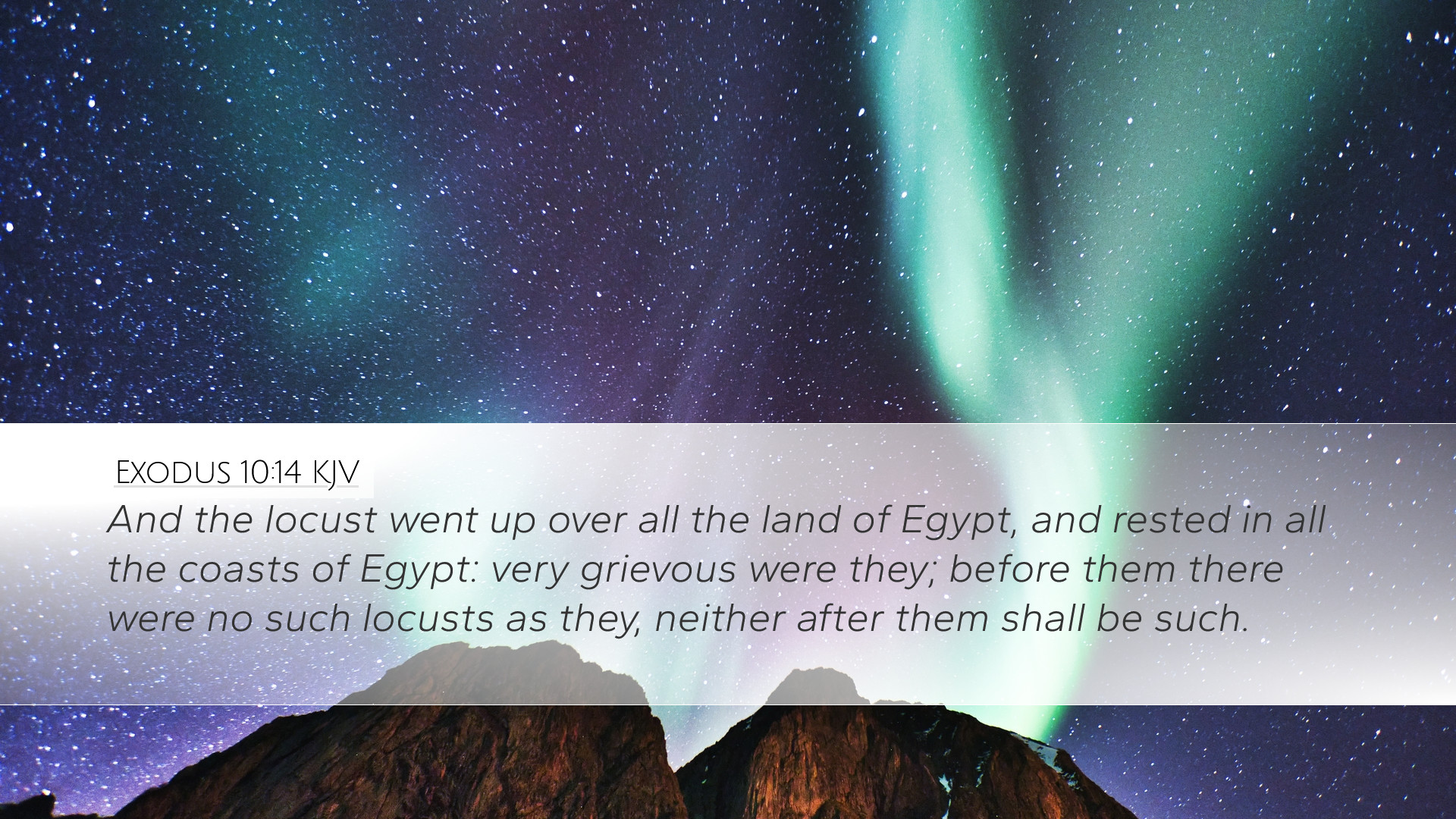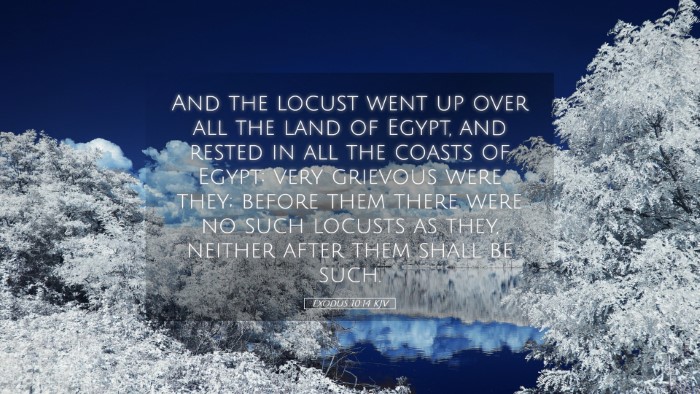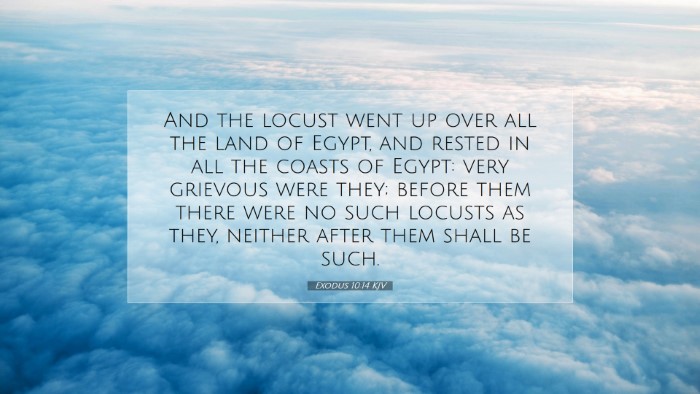Exodus 10:14 Commentary
Verse: "And the locusts went up over all the land of Egypt, and rested in all the coasts of Egypt: very grievous were they; before them there were no such locusts as they, neither after them shall be such." (Exodus 10:14, KJV)
Context and Background
The book of Exodus presents the journey of the Israelites from slavery to freedom, emphasizing the power of Yahweh as He performs miracles to liberate His people. Chapter 10 is pivotal as it describes the eighth plague of locusts, which represents both a physical and spiritual challenge to Pharaoh and the Egyptians.
Significance of the Plague
Historical Context: The mention of locusts in this verse indicates a profound judgment from God upon Egypt, a nation practicing idolatry and resisting divine authority.
Matthew Henry's Insight: Henry notes that the locusts' arrival was in accordance with God's sovereignty. The nature of the swarm—unprecedented in size and destructiveness—was a dire warning to Pharaoh, an appeal to repentance met with hardened resolve.
God's Sovereignty and Judgment
Through this plague, God demonstrates His control over nature and the futility of the Egyptian gods, many of whom were associated with agriculture. This serves as a direct affront to the deities that the Egyptians trusted for protection and prosperity.
- Albert Barnes' Commentary: He emphasizes that the phrase "very grievous were they" indicates the locusts' unparalleled destructiveness. The judgment is both pronounced and potent, revealing God's active role in the world.
- Adam Clarke's Perspective: Clarke highlights the fulfillment of God's promise to bring plagues upon Egypt, underscoring that such catastrophic events were foretold. Each plague progressively escalates in severity, showing God's relentless pursuit of Pharaoh's submission.
Theological Implications
This passage speaks volumes on God's nature as a righteous judge, and the gravity of disobedience. Worshipping false gods leads to ruin, while the acknowledgment of the true God brings mercy and deliverance.
Locusts as a Symbol
Locusts throughout Scripture often symbolize judgment and destruction. This image recalls the prophetic words in Joel 1:4, where the devastation caused by locusts is viewed as a divine wake-up call to a heedless people.
The Impact on the Worship of Yahweh:
As one author rightly pointed out, “The plagues were not only consequential in their physical destruction but served as an opportunity for an entire nation to reconsider its worship.”
Application for Today
Today's readers can draw parallels between the hard-heartedness of Pharaoh and the attitudes seen in contemporary society. Just as locusts obliterated Egypt’s agricultural viability, unchecked sin can devastate the spiritual vitality of individuals and communities.
- Clarity on Repentance: The narrative implores us not to harden our hearts against correction. Each wave of judgment against Egypt highlights God's mercy intertwined with His justice.
- Call to Awareness: The locusts represent not just a physical plague but also a spiritual one. Modern believers are encouraged to be vigilant against forces that could lead them to spiritual ruin.
Reflection Questions
- In what areas of life might we be resistant to God's warnings?
- How can we recognize and address "locusts" in our own lives that threaten our spiritual growth?
- What practical steps can we take to foster a heart that is open to God's instruction?
Conclusion
Exodus 10:14 serves not just as a historical account, but as a timeless reminder of God's sovereignty and a call to humility. The locusts, symbols of divine judgment, compel us to reflect on our spiritual condition, urging an ongoing relationship with the Creator who desires not to destroy but to redeem.


